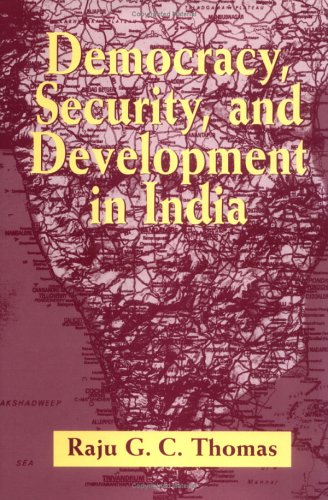Separatist movements, together with the rapid polarization of the Hindu and Muslim communities, have increasingly made governing India a nightmare. Thomas explains the dilemmas facing a state that is both genuinely committed to pluralism and democracy and that wishes to maintain law and order within its current borders. Human rights abuses in Kashmir certainly stem from authoritarian tendencies within the government and army, but also from a paralyzing fear of what would happen in the event of the Indian state unravelling into its hundreds of constituent parts.
Thomas (political science, Marquette Univ.) uses a sweeping perspective to analyze India's current status. Focusing on security, constitutional, military, and economic concerns, he makes a frequent comparison to parallel situtations in other countries. Pakistan, in particular, receives almost as much attention as India. Unfortunately, because he concentrates solely on the broad macro level, Thomas fails to discuss the particular cultural, social, and political forces that have produced serious problems in India. Instead of explaining why separatist movements in Asam, Kashmir, and the Punjab have emerged, he simply treats them as government problems. General readers thus will fail to understand the complexity of India's current situation. For academic collections.
Donald Johnson, Univ. of Minnesota Lib., Minneapolis
Copyright 1996 Reed Business Information, Inc.
